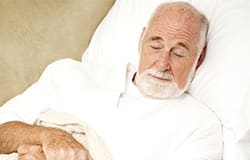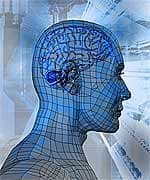On December 22, 2014, the Proceedings of the National Academy of Science published findings by researchers at Boston's Brigham and Women's Hospital of a suppressive effect for evening use of light-emitting electronic devices on sleep and melatonin secretion.
"Electronic devices emit light that is short-wavelength-enriched light, which has a higher concentration of blue light — with a peak around 450 nm — than natural light," explained lead author Anne-Marie Chang. "This is different from natural light in composition, having a greater impact on sleep and circadian rhythms."
Twelve healthy adults were randomized to read a light-emitting eBook or a printed book in dim room light approximately four hours before bedtime for five evenings. At the end of the five day period, participants switched their assignments. Blood samples collected during portions of the study were analyzed for melatonin levels. Sleep latency, time and efficiency were assessed via polysomnography.
eBook reading was associated with more time needed to fall asleep and less rapid eye movement sleep in comparison with reading a printed book. Evening melatonin levels were suppressed by an average of 55.12% in eBook readers while those who read printed books had no suppression. Compared to printed book reading, the onset of melatonin release in response to dim light occurred 1 ½ hours later the day following reading of an eBook.
"Our most surprising finding was that individuals using the e-reader would be more tired and take longer to become alert the next morning," Dr Chang reported. "This has real consequences for daytime functioning, and these effects might be worse in the real world as opposed to the controlled environment we used."
"We live in a sleep-restricted society, in general," she added. "It is important to further study the effects of using light-emitting devices, especially before bed, as they may have longer term health consequences than we previously considered."








